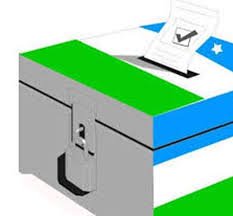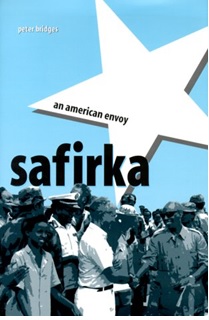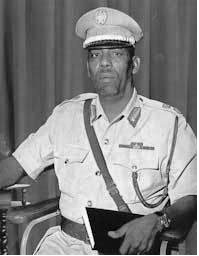The article first appeared at Wardheernews on March 31,2021
Why Puntland's First Democratization Experiment Failed?
Puntland state was established in August 1998 as an autonomous region of Somalia. The first charter adopted to transition the administration from a clan-based system to multiparty democracy in three years never materialized. The administration at the time did not strive, though nascent, to put in place the necessary infrastructure to hold elections due to, as they put it, enormous security and economic challenges. And there was limited time to democratize Puntland. Finally, the president of the time strived for the parliament to extend his tenure, leading to constitutional crises culminating in a full-blown war.

In the intervening administrations, Abdirahman Farole's government took the first initial step towards democratization. It completed the draft constitution ratified by the constituent assembly in April 2012. The adopted constitution paved the way for multiparty system modalities such as drafting key electoral laws and establishing the transitional electoral commission. The commission was made up of nine members; five were appointed by the president and four by the parliament, and the parliament passed local election law in September 2012. In April 2013, the parliament made amendments removing voter registration and ID from the law. The new amendment caused controversy; subsequently, two political associations boycotted the election. The parliament has passed the political association law in June 2012; hence TPEC registered six political associations in March 2013. The local council election slated to take place in July 2013 was cancelled due to the eruption of violence in Qardho and Galkayo, as the elders and politicians alike had been all along calling for the government to stop the election all but unheeded.
There were several attributed reasons that caused the failure of the first experiment to democratize. At the beginning of the process, there was suspicion on the part of the public about the government's motive since it started the program merely a year before the end of its term. The process was hasty, and the government failed to conduct a public consultation with key stakeholders, including politicians, youth, women, and traditional elders who wield significant power in the state. Obviously, the timeframe to conduct wide-ranging civic and voter education was limited. Most of the people in Puntland are young adults who have never exercised their voting rights. In that respect, the administration's respective agencies for the election failed to put in place modalities, such as the process of casting a vote and their rights and responsibilities as a voter, for them to do so.
The political associations raised concerns about the Neutrality of the TPEC, who failed to, as aforesaid, listen and take to account the concerns and suggestions of the political associations and the public as well. It was perceived as part and parcel of the government and Horsed party. The situation was aggravated by the resignation of two commission members due to impartiality with reference to the commission.
Rumours had it other surreptitiously camouflaged as genuine associations were created and bankrolled by the government to stave off the challenge posed by the in-contention opposition associations. The cancellation of voter registration was one of the reasons the political associations mistrusted the process and saw it as a plot to dishonestly arrange the result of the election before it happened. The political associations wrote a letter to the donors raising their concern about the cancellation of voter registration and stated that they wouldn't contest unless the voter registration was reinstated. There was a lack of dispute resolution mechanisms in place to handle election disputes.
Furthermore, the government failed to establish a constitutional court, which was one of the reasons the political associations mistrusted the fairness of the election process since there was no way to seek redress. Neither was there an alternative dispute resolution model to handle the election process. The oppositions argued freedom of expression and assembly are sin quo none to a free and fair election. The government restricted the media from broadcasting dissenting voices. Also, some of the media outlets that are suspected of being favourable to the opposing associations had been shut down all together. The final nail of the coffin had been the banning of assembly, which had consigned Puntland's first democratization experiment into the penumbra.
Will Said Deni's government achieve the second experiment to implement the multiparty system?
Even though Abdiwali Gaas appointed the TPEC two years before the end of his term, he has not, just like his predecessors, established the democratization process in the land and, ultimately, for the citizens to elect their leaders. The late appointment of the commission was the major cause of the failure as the time had not been sufficient enough. Nevertheless, the public was sceptical and suspicious about the process. The donors were also not ready to fund the process due to the delay in nominating the Transitional electoral commission.
President Said Abdullahi was the incumbent who nominated the electoral commission in the first year of his administration. This presaged to the public that the government, this time round, is serious about implementing a democratization system in Puntland. As per the TPEC annual report, it has achieved some milestones that will pave the way for holding one person, one, vote election in Puntland for the first time in its existence. The TPEC registered and certified 10 political associations that met the requirement. It reviewed some electoral laws and was passed by the parliament; recruited key staff for HQ and that of districts earmarked as a litmus test before rolling it out throughout Puntland regions; put in place the legal frameworks regarding the multiparty system modes, and setting out the tender for procurement of biometric registration system.
The voter registration for early election in Eyl, Ufeyn and Qardho was slated to be conducted between 16- 29 may 2021, while concomitantly, the parliament enacted the voter education law. Finally, the members of electoral dispute resolution were appointed by the commission.
Challenges
Even though the commission has achieved key milestones, there are considerable challenges that might hinder the process, of whom the commission's dependency on an unpredictable donor, without which hampers the delivery of electoral activities, stands tall. The Puntland contribution to the commission is minuscule and barely covers the operational cost of the offices. There is limited awareness on the part of the public on how the multiparty system works, as the successive administrations didn't prepare, as far as their rights and responsibilities is concerned, for the citizens to take part in civic life. The weapons in the hands of the public might create an unconducive environment and cause violence and unrest if certain constituents/sub-clans felt injustice for some voting irregularities/suppression, certain constituents/sub-clans felt injustice.
Equally important, the traditional elders who wield significant power could pose a challenge to democratization, as they might perceive the process of migrating from a clan-based system to a multiparty system, will render them un-influential and confine them in the traditional agnate contractual principles.
Certainly, media freedom has been curtailed during the tenure of Said Deni, as several reporters were arrested for broadcasting unpleasant news for his administration. In that regard, as democracy needs to operate in a free environment, the administration should restrain itself and let the mass media operate freely in covering the election.
It's also unclear how the commission will hold elections in districts controlled by Somaliland and what modalities representatives, given their constituents are under hostile administration, from these districts will be elected. Essential pillars, such as the constitutional court, to solve the election disputes and the demarcations of the districts, have not been established yet. Finally, the covid-19 pandemic is the biggest challenge and may hamper the whole process.
Recommendations
- The commission should conduct a wider civic education in all cities before the election to inform citizens of their rights and responsibilities.
- They should also work to build the confidence and trust of the people to the election process.
- They also must engage with key stakeholders and listen to their thoughts and concerns regarding the process.
- The traditional elders who wield significant power should also be meaningfully engaged in the process.
- The Puntland resource is insufficient to support the election; therefore, the International community should strive to provide technical and financial support to the commission.
- The government should hasten the establishment of the constitutional court to ascertain that, this time round, it's a series about the process of democratization, which in turn lifts the confidence of the political associations.
- The Ministry of Interior should also expedite the demarcation of districts.
- The government should also formulate a plan to disarm the clans ahead of the election.
- The multiparty system is long overdue in Puntland, and the current administration must, at all cost, seize the opportunity and implement it.

